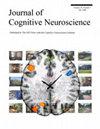工作记忆指导基于模型的决策策略中的行动估价。
IF 3.1
3区 医学
Q2 NEUROSCIENCES
引用次数: 0
摘要
人类在顺序决策中同时使用无模型(或习惯性)策略和基于模型(或目标导向)策略。工作记忆(WM)对于基于模型的策略至关重要;然而,工作记忆在这些过程中的确切作用仍然难以捉摸。本研究探讨了工作记忆过程对决策的影响以及其背后的认知计算机制。具体来说,我们使用了两阶段决策任务的实验数据,发现延迟和负荷这两个 WM 特有的变量会影响目标回顾行为。然后,我们提出了 WM 参与信息处理的可能计算机制,并将其整合到基于模型的系统中。与经典的混合强化学习模型相比,所提出的混合-WM 模型再现了所观察到的实验效果,并更好地贴合了人类行为。这些结果通过独立的数据集得到了验证。此外,模型参数的不同可以解释顺序决策中与年龄有关的差异。总之,这项研究表明,在基于模型的策略中,WM 引导行动估值,突出了高级认知功能对顺序决策的贡献。本文章由计算机程序翻译,如有差异,请以英文原文为准。
Working Memory Guides Action Valuation in Model-based Decision-making Strategy
Humans use both model-free (or habitual) and model-based (or goal-directed) strategies in sequential decision-making. Working memory (WM) is essential for the model-based strategy; however, its exact role in these processes remains elusive. This study investigates the influence of WM processes on decision-making and the underlying cognitive computing mechanisms. Specifically, we used experimental data from two-stage decision tasks and found that delay and load, two WM-specific variables, impact goal-revisiting behaviors. Then, we proposed possible computational mechanisms by which WM participates in information processing and integrated them into the model-based system. The proposed Hybrid-WM model reproduced the observed experimental effects and fit human behavior better than the classic hybrid reinforcement learning model. These results were verified with independent data sets. Furthermore, differences in model parameters explain the age-related difference in sequential decision-making. Overall, this study suggests that WM guides action valuation in model-based strategies, highlighting the contribution of higher cognitive functions to sequential decision-making.
求助全文
通过发布文献求助,成功后即可免费获取论文全文。
去求助
来源期刊
CiteScore
5.30
自引率
3.10%
发文量
151
审稿时长
3-8 weeks
期刊介绍:
Journal of Cognitive Neuroscience investigates brain–behavior interaction and promotes lively interchange among the mind sciences.

 求助内容:
求助内容: 应助结果提醒方式:
应助结果提醒方式:


